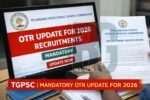In recent times, many borrowers have faced difficulties in repaying loans and credit card dues due to financial stress, job loss, or emergencies. This has unfortunately led to the rise of harassment and threats by unauthorized recovery agents. However, the Reserve Bank of India (RBI) has issued strict guidelines to prevent such illegal practices and safeguard borrower rights.
Stages of Loan Default, Time-Based Overview
1. 0–30 Days: Grace Period
- Missing an EMI prompts reminders from the bank.
- This is the right time to communicate and seek a solution.
2. 31–60 Days: SMA-1 (Special Mention Account)
- Your loan is under early warning for potential default.
3. 61–90 Days: SMA-2
- Risk of default increases; banks may start legal preparation.
4. 90+ Days: NPA (Non-Performing Asset)
- Loan is classified as a default.
- The bank may begin legal recovery procedures.
Legal Recovery Options for Banks
Secured Loans (Home, Vehicle, etc.):
- Action under SARFAESI Act
- Borrower receives 60-day legal notice
- If dues unpaid, bank can take possession and auction the asset
Unsecured Loans (Credit Cards, Personal Loans):
- Banks must approach Debt Recovery Tribunal (DRT)
- No right to seize assets without court orders
Illegal Recovery Practices Are Not Allowed
Some banks and agents may:
- Use threats or physical intimidation
- Call borrowers late at night
- Publicly shame the borrower
- Send unauthorized agents
⚠️ All these actions are illegal.
RBI Guidelines for Recovery Agents (Official)
✅ Agents must be RBI-authorized and properly trained
✅ No recovery calls before 8 AM or after 7 PM
✅ No calls to friends/family for harassment
✅ No threats, abuse, or public humiliation
✅ Agents must carry identity cards and disclose bank details
✅ Banks must establish an internal grievance redressal system
If these guidelines are violated, you can complain directly to RBI, Banking Ombudsman, or local police.
Borrowers’ Rights and Options
- Request for loan restructuring, EMI relief, or One-Time Settlement (OTS)
- Ask for a written statement of outstanding balance
- Don’t sign blank documents or settle with unauthorized agents
- File a complaint if recovery crosses the legal line
Banks CANNOT:
- Take your property without legal notice (for secured loans)
- Harass you through third-party agents
- Freeze accounts without due process
- File a police case just for missing EMIs
Final Word: Know Your Rights, Stay Protected
Loan defaults are difficult — but illegal recovery is not the answer. RBI’s consumer-first approach ensures that borrowers have protection, and banks are bound by ethical recovery rules.
If you’re a borrower under stress:
- Talk to your bank
- Seek a structured solution
- Report any harassment
Awareness is your strongest protection. Share this with someone who needs it.















